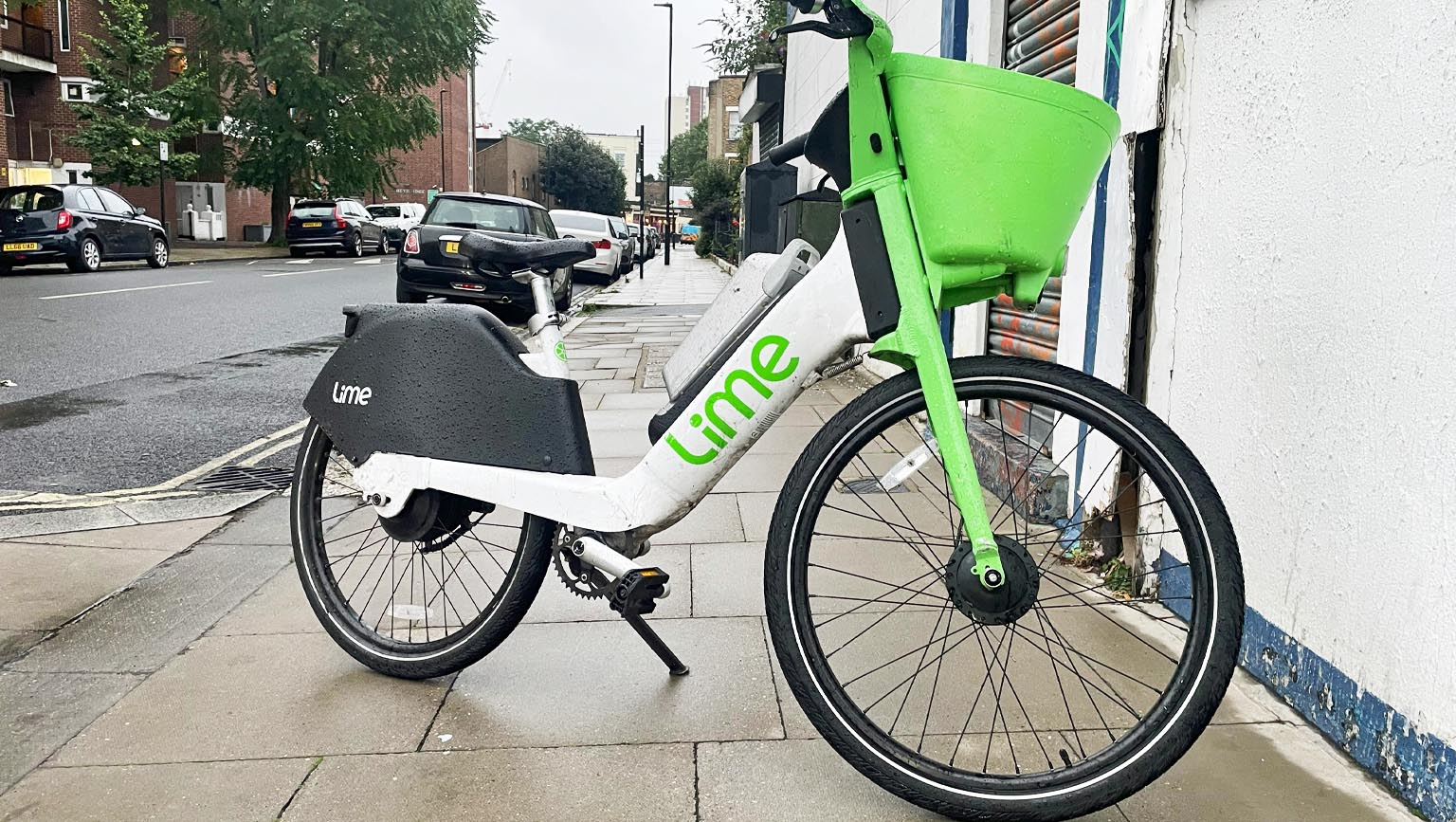
The Basement Gym + Studio opens in Camden Town
Camdenist readers get 50% off their first month’s membership, too

After more than 200 years, the humble bicycle still remains quite possibly the ultimate mode of urban transportation to have ever been invented.
With early 20th century enthusiasm for the motor car grinding slowly to a halt in the face of traffic jams, parking tickets, air pollution and our narrow streets becoming dominated by rows of stationary vehicles, the attraction of a bicycle has never really waned – in fact it’s become ever more desirable.
Note the insatiable appetite for stealing bikes, the obsessive geekery of the cycling nuts, and the symbolic life moment when every child removes their stabilisers and wobbles past another big independence milestone.
After decades of minor tweaks to the basic premise of two wheels powered by pedals, gears and a chain, the arrival of batteries and GPS tech have recently enabled a revolution in how we can now use these vehicles.
Sharing bikes is not a new idea. Amsterdam’s hippie idealist white bicycles (which anyone could just pick up and ride) were a big thing in the Ono & Lennon era, even if the concept never really worked that well. But today, savvy tech operators have swarmed into our streetscape with their ever-improving electric-assist hire bike fleets.
It’s an amazing new low carbon mode of urban travel, but in this era of vocal pushback against the ULEZ and LTNs, it’s inevitable that not everyone is happy.
The latest problem is clear for all to see when walking around the borough of Camden – dockless hire bikes littering the walkways, blocking the roads, even clogging up the canal. It seems that, despite strict rules imposed by the council, including recently restricting bikes to designated parking bays (which kinda defeats the joy of being dockless?) there are still loads of vehicles being abandoned carelessly.
How is this possible though, if the GPS-tracked bikes and their apps won’t permit you to park badly? It’s all down to some viral Tik Toks, which revealed how Lime bikes could he ‘hacked’ with bit of a push, and then comandeered for a journey without the battery engaging – for free.
Without the tracking, the temporary bike thief can simply dump the bike when they’ve pedalled as far as they want to go, or the lock engages again. The hacking craze is responsible for the ‘click-clack’ noise that so many passing Lime bikes seem to be making, something Time Out has even branded “London’s summer soundtrack for 2023.”
It’s notable that this workaround only seems to work on the Lime models, (and with the speed operators improve their fleets these days, the issue should be solved soon), but the hunger for a free ride reveals a lot about how hire schemes may need to adapt in future.
“Forest eBikes are resilient and the internal locking system has prevented our fleet from experiencing the widespread hacking issues which other operators are facing,” says Alex Berwin, Head of Policy at Forest (previously Human Forest). “These hacking problems are, of course, inconsiderate to operators and local residents who have to manage the fallout. However, there’s a bigger picture issue here – convenient, sustainable mobility is often prohibitively expensive. We need to find ways to keep the costs down, and that’s why we work hard to keep our eBikes affordable.”
Forest have indeed pioneered the free 10 minutes of ride time daily via a clever in-app advertising model, but even then, under 18s are not permitted to use the scheme, and it’s undoubtedly young people who are hacking bikes most regularly.
“We understand young people want access to the shared mobility ecosystem and it’s promising to see that there’s demand from the younger generations,” says Alex. “However, users and eBike providers need to operate within the boundaries of the law. As an operator, we cannot allow users under the age of 18 onto our eBikes. We are always willing to work with London communities to support training and projects which encourage children and young adults onto bikes in a safe environment.”
Perhaps one solution is an education programme in schools on how we need to behave towards these new types of vehicles, but you get the feeling that won’t be enough. Meanwhile, Camden Council are widely praised for their visionary approach to embracing eBikes and scooters, however they too are having to deal with the on-street repercussions.
Councilor Adam Harrison, cabinet member for a sustainable Camden, says “I’m proud Camden was the first local authority in London to roll out a comprehensive network of dockless bike hire and e-scooter bays. We have put in place almost 200 bays so far, and recently consulted on the next phase of expanding them. We aim to reach almost 300 bays by 2025. Over 90% of those bays are on the carriageway, rather than the footway – again, to protect pedestrian space.”
Harrison is critical that London is a ‘confusing patchwork’ of different policies, with other boroughs offering few or no dedicated bays, and bike hire schemes being introduced without any contractual framework or set expectations from users about rules for parking.
The law, as increasingly usual with tech disruption, needs to play catch-up. Currently, no powers exist in England to manage the impacts of hire bikes, or to either ‘ban’ or ‘permit’ them. “We continue to call on the government to provide powers to all local authorities through the upcoming Transport Bill,” says Adam. “Failure to do so will leave many councils powerless to respond to public concerns, and the streets littered with bikes that should be parked in bays.”
With young people clearly keen to join the revolution, but often unable to do so legally, perhaps a tiered or subsidised pricing model and a relaxation of age limits might also be a good demand for the bill?
Dockless hire bays are a compromise, but if councils are really keen to limit car emissions further – and particularly in a part of London like Camden where only 40% of people even own a car, and 8 in 10 trips are already made by public transport, walking or cycling – perhaps soon the bikes should be permitted to be left in even more of the street parking spaces current ‘reserved’ for cars?
Dockless bikes, alongside the eventual arrival of fully self-driving cars, do have the potential to create a kind of transportation utopia, where vehicle ownership is pointless as you are always only seconds away from picking up a ride.
The degree of hacking and abandoning of bikes today, while deeply anti-social and annoying, does corroborate the model of ultimate travel convenience that we’re heading towards. Ad schemes like the one at Forest may also help keep the costs down, and legislation on age and etiquette may help too, (although as we’ve seen, compelling users to take photos to demonstrate good parking is rendered pointless if the hotwired bikes can just be left in the middle of the road with impunity, so all policy needs to be fully joined up).
As any users of these bikes will attest, the experience is improving all the time. If we can now do that for the pedestrians then we’ll have avoided the pitfalls that have lead to backlashes and bans in other cities like Paris.
What do you think of the eBike phenomenon? Do vote and add your own suggestion to the poll in our weekly newsletter this week – you can do it here.
Remember, Camdenist offers 60 mins of ride credits, valid for 3 months on Forest eBikes. Find out how to claim here.

Camdenist readers get 50% off their first month’s membership, too

A brand new hairdressing and barbering academy has landed in Camden Town and is now seeking style-conscious models and enthusiastic trainees

We speak to founder, Sol, about bringing the studio to Kentish Town

Explore the neighbourhood’s brand new neighbourhood